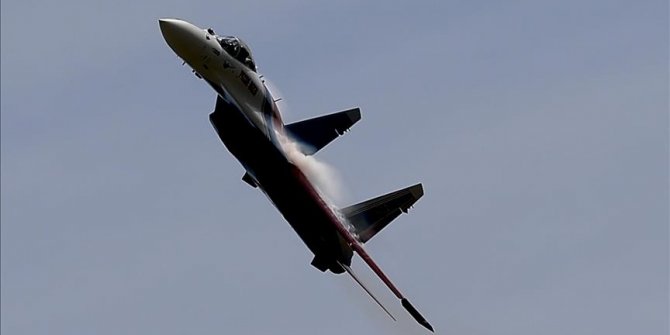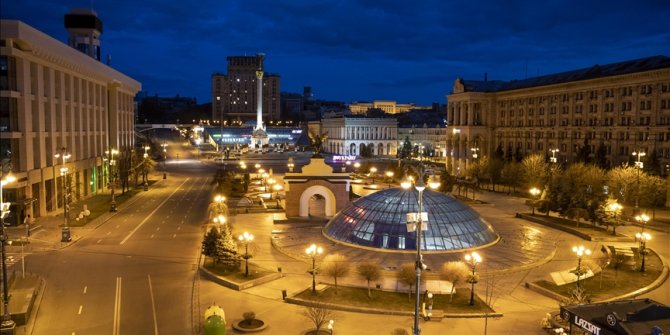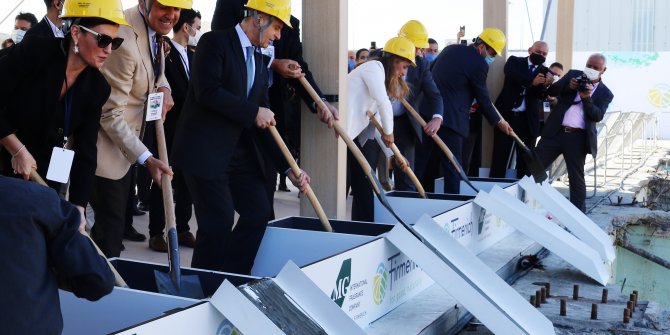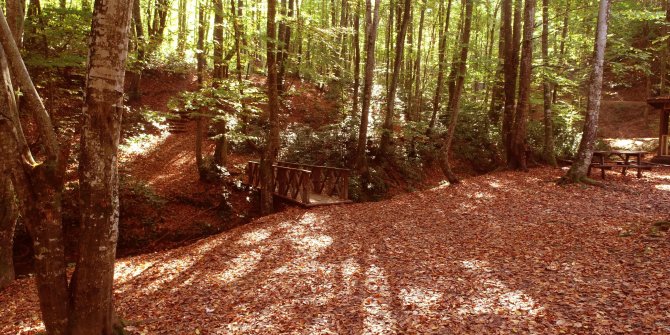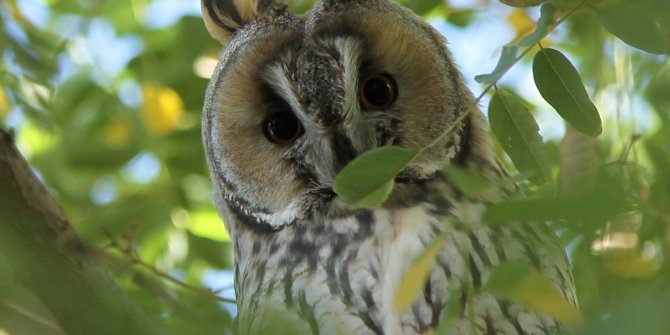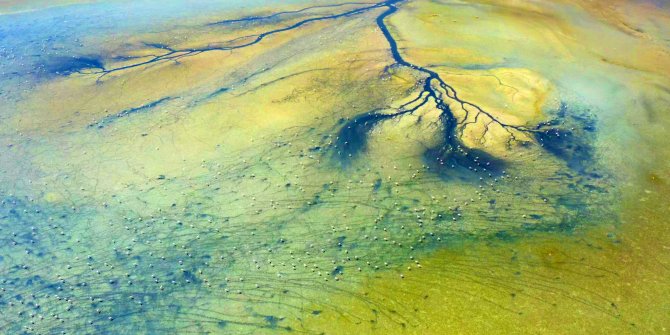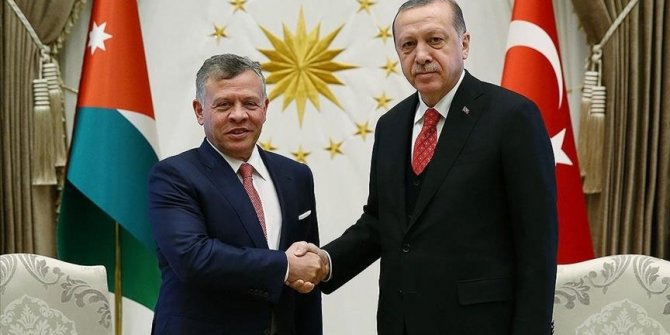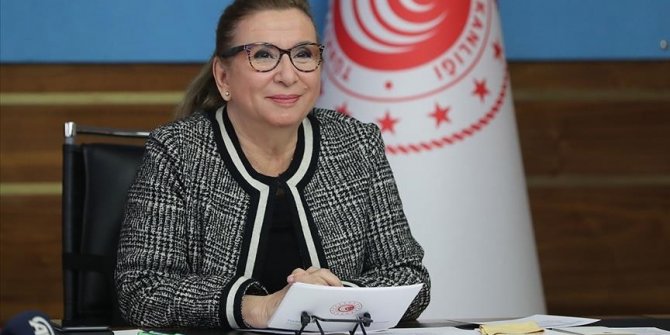Syrian brothers came as refugees, now business owners in Turkey

Mohammed knew it was time to leave behind his beloved home in Aleppo, Syria, as he did not want to be part of the bloody-handed Bashar al-Assad regime's military 11 years ago.
On the occasion of World Refugee Day, Mohammed and Ahmed Mulla brothers have shared their journey to success, starting as refugees to now business owners in Ankara.
Labeled by the UN in 2000 to honor refugees around the globe, World Refugee Day is celebrated annually on June 20 to raise awareness of the situation of refugees throughout the world.
Amid mounting atrocities in the civil war raging in Syria since early 2011, Turkey opened its borders to Syrians fleeing from the Assad regime's brutalities.
Mulla brothers are among millions of Syrians who fled to Turkey, seeking refuge from ongoing Assad regime brutality.
Speaking to Anadolu Agency, Mohammed was only 17-years old when he and his family crossed into Turkey with hopes to rebuild a life that they had to leave behind in Aleppo.
He first came to Turkey's southernmost Hatay province, stayed there for a year, and learned Turkish. He then left to south-central Gaziantep and worked at the local bus terminal as an office boy as well as a translator for those Arabic-speaking travelers.
Arrived in Turkish capital Ankara in 2016, Mohammed said he had worked at various jobs to meet his family's needs.
As a predecessor job, Mohammed began to work at several different dry-cleaning shops in Ankara.
"Before coming to Turkey, my father worked as a dry cleaner in Syria. Then, he worked in Lebanon as a dry cleaner for the al-Hariri family for four years," he said while adding that his father taught him everything he knew about the job.
Telling that they have not received any means of monetary support from the Turkish government, the Mulla brothers were able to open their very own dry-cleaning center in 2018 at the heart of Ankara with the money borrowed from family and friends.
When their father passed away due to COVID-19 in 2020, the brothers came to a "crossroads," Mohammed said.
"Without the support from our father, we either had to shut down our business, or we were going to take a risk and try to manage as two brothers," he added.
Mohammed and Ahmed took a chance and now operating their business with growing profit each day.
Arrived as a refugee, the Mulla brothers are now business owners, contributing to the Turkish economy and society.
"Almost 99 percent of our customers give us satisfied feedbacks. Moreover, approximately 75 percent of our customers are our loyal customers, as we do sometimes encounter some racism or rather discomfort due to our nationality," Mohammed said.
While the minority of people refrain from getting service from the Syrian business owners, Mohammed said most people coming to the center ask for him to teach them the Arabic language.
"There is one customer who asks me to teach him an Arabic word each time he comes," Mohammed tells with a big smile on his face.
He also noted foreign diplomats residing in Ankara, especially those from Arabic-speaking countries, are getting their dry-cleaning services from the Mulla brothers.
Telling that their first goal is to pay their debts, Mohammed said their next goal is to open their own carpet cleaning factory within a month or two.
For his part, Ahmed said Turkey meant "hope" for them and as they crossed into the country, he saw that hope in the eyes of Turkish soldiers, he added.
"We are operating this business, not only to meet our needs but also to contribute to the Turkish economy. It's our duty. I am happy and proud to be here in Turkey," Ahmed said.
Additionally to the Mulla brothers, the dry-cleaning center meets the needs of two other families in which one of them is Abbas Efendi.
18-year old Abbas began to work beside the Mulla brothers very recently, as he and his family came to Turkey in 2016.
Originally from Iraq's Tal Afar city, Abbas and his family had to escape the country due to Daesh terror.
Located in Iraq's northern Nineveh province, majority-Turkmen Tal Afar sits roughly 60 kilometers west of provincial capital Mosul.
The Daesh terrorist group captured Tal Afar, a predominantly Turkmen city, in mid-2014 and killed numerous Turkmen in the organized attacks.
Abbas said he and his family fled the Daesh terror and first went to Syria, then to Turkey. Being the oldest of seven siblings, Abbas said he is happy to be working for the Mulla brothers and sees them as one of his siblings.
When asked if he misses his home in Iraq, "Of course I do pine for it. If we didn't have to flee, then I would've been in school right now and my father would be the only one working," he said.
However, with seven siblings, Abbas said he has to work to help his father to meet the needs.
With his perfect Turkish, Abbas also greets customers when Mohammed or Ahmed is not available.
The dry-cleaning center also contributes to the Turkish community as Mohammed said they had washed Turkish post flags of local schools, as well as for the military.
During Turkey's anti-terror Operation Olive Branch launched in 2018 at northern Syria's Afrin, the Mulla brothers' dry-cleaning center washed the uniforms of Turkish soldiers for free.
"When the COVID-19 pandemic first emerged, we provided free dry-cleaning service to all health personnel. This was our way to give our thanks for all their efforts," Mohammed added.
According to UNCHR's latest report, "the number of people fleeing wars, violence, persecution and human rights violations in 2020 rose to nearly 82.4 million people."
The report also stressed that "For the seventh year in a row, Turkey hosted the largest refugee population worldwide (3.7 million refugees), followed by Colombia (1.7 million, including Venezuelans displaced abroad), Pakistan (1.4 million), Uganda (1.4 million) and Germany (1.2 million)."


